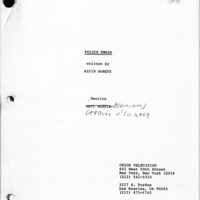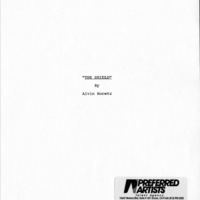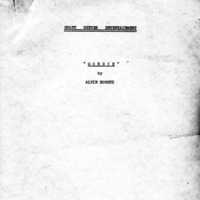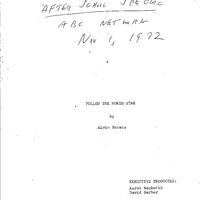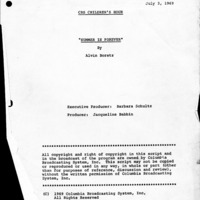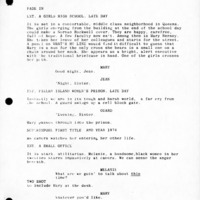The Television Film
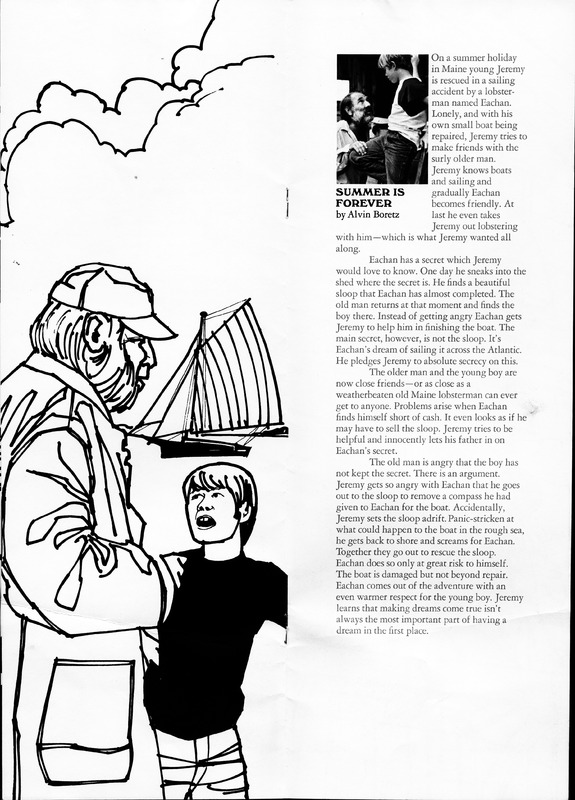
After television's steep rise in popularity during the 1950s, television networks stabilized and secured their audiences during key time slots throughout the day and into the evening to promote advertisements, air popular series, and premiere television films. Made-for-TV films gained popularity due to the network's full control of the film's production and distribution. Television writers such as Boretz, who was already writing hour-long episodes for anthology series such as the Armstrong Circle Theater and the Alcoa Hour, took to writing original material for networks that would be released as television films.
Boretz wrote numerous scripts for television films from the late 1960s until the mid-1980s that were successfully produced by networks like ABC and CBS. Films such as Summer is Forever (1969), a story about a young boy named Jeremy and his friendship with Eachan, a reluctant old fisherman, who learn from each other the power of dreams and perseverance.
However, most of Boretz's forays into writing, pitching, and negotiating deals for television films did not end successfully. For films such as Gordie, which was attached to the CBS Television Network, it was the network that ended the film's production due to a lack of desire to distribute a "sports star" film. While the script is clearly more about Gordie Howe's life and how his career in hockey impacted him, the network labeled it as a sports movie and did not proceed further. On the other hand, some scripts like The Shield, a film about a violent crime and the loopholes in the "Shield" laws, never made it to the stage where Boretz could successfully pitch it to networks.
Other television films like The Daughter of Mata Hara (1959) written for NBC Matinee Theater which starred Anna Maria Alberghetti and a young Rita Moreno, were produced but were not successfully promoted. Another promising film, The Secret Wars of Wild Bill Donovan (1980), a story about Donovan, the chief of America's first foreign intelligence service who started the OSS and then the CIA, was set to be made by CBS Television. However, production stopped when the star and producer, Carroll O'Connor was no longer attached to the project.
Production conflicts with networks, actors, and writers were not uncommon during Boretz's career. His later films like Brass (1985) and Sister Margaret and the Saturday Night Ladies (1987) were prime examples of the struggles writers face when the network forces re-writes with new co-writers. In his career, Boretz was very clear on maintaining his primary or sole writing credits, even in the face of networks or producers bringing in additional screenwriters. When networks would bring in other writers that would drastically alter Boretz's script, he would often part ways with the project and ask for his name to be credited under his pseudonym.
While Boretz wrote constantly for television in these decades, it is clear through the works of his television films how the freedom of the film's length and lack of episodic nature allowed him the space to write on subjects that he enjoyed and wanted to share with the world.
